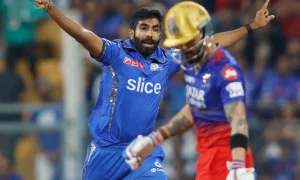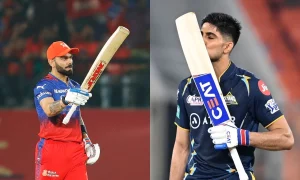According to a press statement, the International Cricket Council (ICC) has approved the use of a stop-clock in white-ball cricket. It is now being used on a trial basis from 2023 to April 2024 in order to manage the period between overs.

The regulation also includes a penalty, with the statement stating that teams would be penalized five runs if they fail to begin an over within a minute of the preceding over’s completion for the third time in the innings.
“Chief Executives’ Committed (CEC) greed to introduce a stop clock on a trial basis in men’s ODI and T20I cricket from December 2023 to April 2024,” the press release read.
“The clock will be used to regulate the amount of time taken between overs. If the bowling team is not ready to bowl the next over within 60 seconds of the previous over being completed, a 5-run penalty will be imposed the third time it happens in an innings,” it continued.
For a long time, ICC has prioritized time regulation. For a long time, on-field penalties have been used in the sport, resulting in matches being concluded inside the stipulated time.
New gender eligibility regulations by ICC
The press statement also notes that the governing council has established revised gender eligibility restrictions. Over the previous nine months, the board and stakeholders have several conversations on the matter.
The ultimate decision was based on certain fundamental concepts, which are listed below in order of precedence.
“Protection of the integrity of the women’s game, safety, fairness and inclusion, and this means any Male to Female participants who have been through any form of male puberty will not be eligible to participate in the international women’s game regardless of any surgery or gender reassignment treatment they may have undertaken,” the press release read.
To summarize, the ICC has prohibited transgender athletes from competing in women’s international cricket. The governing council has delegated their participation in domestic cricket to each individual board. The restrictions will also be reviewed every two years.
“The changes to the gender eligibility regulations resulted from an extensive consultation process and is founded in science and aligned with the core principles developed during the review. Inclusivity is incredibly important to us as a sport, but our priority was to protect the integrity of the international women’s game and the safety of players.”
ICC chief Geoff Allardice




